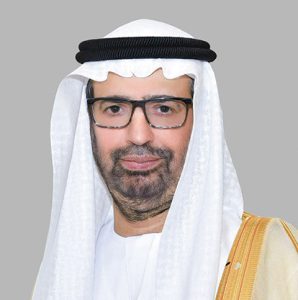Abu Dhabi / WAM
Under the patronage of Sheikh Nahyan bin Mubarak Al Nahyan, Minister of Tolerance and Coexistence, and coinciding with the fourth anniversary of its founding, The World Muslim Communities Council (TWMCC) is organising an international conference on May 8-9, featuring representatives of over 150 countries, to discuss the topic of Islamic unity.
The event will be held at the Abu Dhabi National Exhibition Centre (Adnec).
In his speech announcing the conference, Dr Ali Rashid Al Nuaimi, Chairman of the TWMCC, said the issue of Islamic unity has always been one of the key topics that Muslim scholars have been examining since the 20th century, and it has begun to re-emerge in the modern era with the rise of anti-colonial movements.
Islamic unity has created a pioneering civilisation that has contributed to the advancement of humanity and shaped the social and cultural unity of the Islamic world, he added, highlighting the major strides made by the Islamic world in the fields of science, arts, literature, philosophy, architecture, astrology, mathematics, medicine and music.
He then pointed out that the cultural unity that has lasted for centuries and has continued to embrace various peoples and civilisations, serving as a model and promoter of pluralism, coexistence and cultural dialogue and exchange.
Themed “Islamic Unity: The Concept, Opportunities and Challenges”, the TWMCC’s international conference will explore the history of Islamic unity and its effects on all aspects of life, as well as its role in establishing human civilisation and the historical circumstances that led to the decline in the understanding of Islamic unity and the
misconceptions around it.
Al Nuaimi explained that the conference will discuss nearly 100 academic papers and feature keynote speeches and lectures on the main topic. In addition, 105 speakers from various countries will participate, including representatives of religious, political, and academic organisations, along with several presidents, prime ministers, grand muftis, academics, heads of universities, professors, experts, intellectuals, researchers and artists.
 The Gulf Time Newspaper One of the finest business newspapers in the UAE brought to you by our professional writers and editors.
The Gulf Time Newspaper One of the finest business newspapers in the UAE brought to you by our professional writers and editors.
